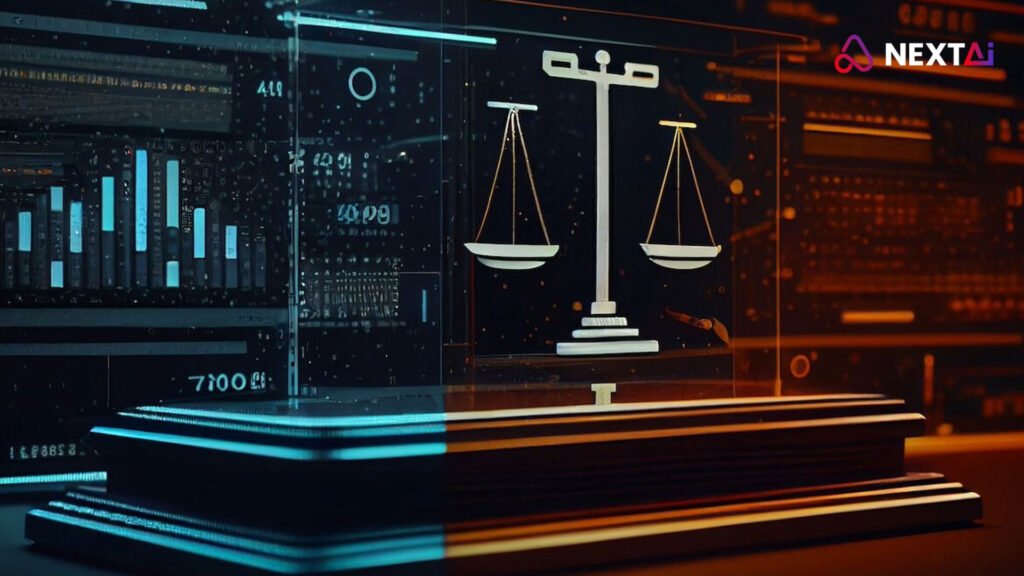
How AI is Redefining Data Governance: Ensuring Security, Compliance, and Transparency in a Data-Driven World
By Rajiv Rajkumar Bathija | AI Redefining Data Governance
With a background in Computer Science and a Master’s in Data Engineering, I’ve dedicated over 35 years to advancing Artificial Intelligence (AI) and data governance. At age 60, I am honored to share insights from my journey, during which I’ve helped organizations leverage AI to transform data practices and achieve greater security, compliance, and transparency. In this article, I’ll discuss how AI-powered data governance solutions are shaping the future, giving organizations the tools to protect sensitive information, adhere to regulations, and operate transparently.

As data becomes a cornerstone of modern business, the importance of effective data governance is paramount. AI offers innovative solutions for managing data access, maintaining compliance, and ensuring data integrity, giving organizations the tools to protect sensitive information, adhere to regulations, and operate transparently. Here’s how AI is revolutionizing data governance, helping businesses safeguard and optimize their most valuable asset—data.
1. Enhancing Data Security with AI-Powered Monitoring
Data security is foundational to data governance, and AI elevates security practices by monitoring data access and usage in real-time. Traditional security methods often lack the agility to keep up with evolving threats, but AI-driven monitoring tools use machine learning to detect suspicious patterns and anomalies, identifying potential breaches as they happen.
For example, AI can track user access to sensitive data and flag unusual activity, such as attempts to access data outside of typical hours or from unknown devices. This proactive approach allows businesses to prevent data breaches, minimizing the risks associated with unauthorized access. AI-powered monitoring also provides an additional layer of protection, ensuring that organizations can safeguard their data even in the face of emerging threats.
2. Automating Compliance with Regulatory Standards
Compliance with data privacy regulations, such as GDPR and CCPA, is a critical aspect of data governance. With evolving legal requirements, AI helps organizations automate compliance by monitoring and enforcing regulatory standards. AI-driven tools can continuously track data usage, ensuring that personal information is handled in accordance with legal obligations.
AI can automatically apply anonymization techniques, generate audit logs, and restrict data access based on regulatory requirements. By automating these compliance measures, businesses reduce the likelihood of regulatory violations, minimize fines, and demonstrate their commitment to data privacy. This automation makes it easier for organizations to maintain compliance in a constantly changing regulatory landscape.
3. Streamlining Data Access Controls and Permissions
Managing data access is complex, especially in organizations with multiple departments and stakeholders. AI enhances data governance by automating access controls, determining permissions based on roles, and ensuring that only authorized users have access to sensitive information.
For instance, AI-driven tools can analyze user roles and usage patterns to dynamically assign or revoke access based on changing needs. This intelligent access management not only improves security but also simplifies the process for data engineering teams. AI’s ability to automate access controls ensures that data governance remains consistent and secure across the organization.
4. Improving Data Transparency Through Traceable Data Lineage
Data lineage, or tracking the history and movement of data within an organization, is essential for transparency and accountability. AI helps automate and visualize data lineage, providing clear, real-time visibility into how data is generated, transformed, and used.
AI-powered data lineage tools automatically document every step of the data lifecycle, creating an audit trail that is invaluable for compliance and troubleshooting. This transparency helps businesses understand data flow, detect anomalies, and address any issues that arise in the data pipeline. With AI-driven data lineage, organizations gain complete insight into data handling, promoting accountability and trust within the company.
5. Predictive Analytics for Proactive Risk Management
AI-driven predictive analytics enables organizations to anticipate and mitigate potential risks associated with data handling. By analyzing historical data and identifying patterns, AI models can forecast future risks, such as potential compliance violations, security vulnerabilities, or data quality issues.
For example, AI can predict high-risk areas where sensitive data is frequently accessed, allowing organizations to take preventive measures. Predictive analytics transforms data governance from a reactive process to a proactive one, enabling companies to address risks before they escalate. This proactive approach is essential for maintaining a secure and compliant data environment.
6. Ensuring Data Quality with Intelligent Validation
Data quality is central to data governance, as poor-quality data can compromise analytics, decision-making, and compliance. AI automates data validation processes, detecting and correcting inconsistencies, inaccuracies, and duplicates in real-time.
AI-driven data quality tools can continuously monitor data, flagging potential errors and applying corrections as needed. This ensures that data remains reliable and accurate throughout its lifecycle. By automating data quality management, AI supports consistent, high-quality data governance, which in turn enhances the value and integrity of the data.
7. Facilitating Audits with Automated Documentation
Preparing for data audits can be a time-consuming task, but AI simplifies the process by automating documentation and creating audit-ready records. AI-driven documentation tools automatically log data access, transformations, and lineage, providing a complete history that auditors can review.
With AI, organizations can generate compliance reports, access logs, and audit trails without extensive manual effort. This automation not only saves time but also improves the accuracy and completeness of audit records. By streamlining the audit process, AI helps organizations maintain compliance and transparency effortlessly.
8. Adaptive Data Governance for Scalability
As organizations grow and data volumes increase, data governance needs to be scalable. AI introduces adaptive data governance by continuously learning from data usage patterns and adjusting governance practices accordingly. This scalability allows organizations to handle growing data needs without compromising security, compliance, or efficiency.
For instance, AI can adjust data access controls or compliance measures based on changing data patterns, ensuring that governance practices evolve alongside business needs. This adaptive approach ensures that data governance remains effective and efficient, even as the organization’s data environment expands.

Final Thoughts: Leading the Charge in AI-Driven Data Governance
AI-powered data governance is reshaping how businesses manage data security, compliance, and transparency. From predictive risk management to automated audits, AI enables organizations to build a robust and scalable data governance framework that meets today’s stringent regulatory and security requirements.
My background in Computer Science and Data Engineering has fueled a career-long dedication to empowering businesses with cutting-edge AI solutions that uphold the highest standards of data security and compliance. For those ready to explore the future of data governance with AI, let’s connect. Together, we can design a data governance strategy that not only secures your data but also upholds the highest standards of compliance and transparency.
#ArtificialIntelligence #DataGovernance #RajivRajkumarBathija #DataSecurity #PredictiveAnalytics #ComplianceAutomation #DataTransparency
 Author: Rajiv Rajkumar Bathija
Author: Rajiv Rajkumar Bathija
